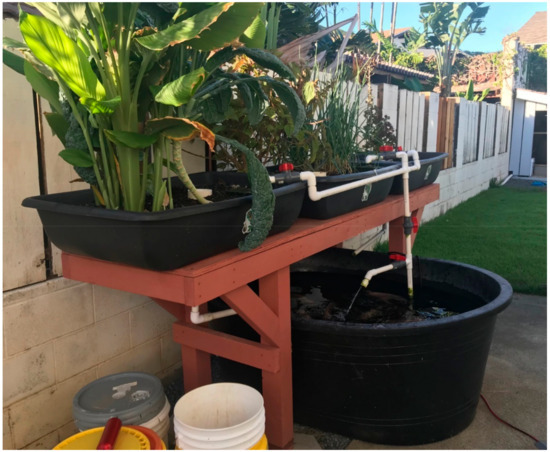By Victoria Mirowski
@Victoria
A study conducted in Hawaii showed a small scale implementation of a local food system** in the community of Waimanalo. The study was titled “Reconnecting Rural Native Hawaiian Families to Food through Aquaponics.”
Residents of Waimanalo face high levels of food insecurity due to the high cost of living and other socioeconomic barriers resulting in an investment in a backyard aquaponics program.
This program was used to model stewardship and reciprocity found in the ahupu’a system, a political-geographical land division that encompasses the Native Hawaiian food system and create a reciprocal relationship between land and sea as well as human and food (Beebe et al., 2020).
At the end of 6 years, multiple social, economic, and environmental impacts were noticed by the selected families and their communities. It was stated that “aquaponics far exceeded their expectations and identified multiple benefits that they gained from their systems,” and the main benefits included health improvement, financial savings, family strengthening, community connectedness, environmental sustainability and cultural aina-based practices (Beebe et al.,2020).
While there were challenges and limitations to the study, it offers a well developed guideline for other community aquaponic projects and presents a well round glance into the true impacts an aquaponic system may have when operating as a local food system.
To read more about this study:
Beebe, J., Amshoff, Y., Ho-Lastimosa, I., Moayedi, G., Bradley, A.L.C., Kim, I.N., Casson, N., Protzman, R., Espiritu, D., Spencer, M.S. & Chung-Do, J.J. (2020). Reconnecting Rural Native Hawaiian Families to Food through Aquaponics. Genealogy, 4(1). https://doi.org/10.3390/genealogy4010009
**What is a Local Food System?
A local food system has no consensus in terms of geographic distance between production and consumption, but the USDA recognizes local based on marketing arrangements and a general standard is seeing the importance and presence of social, cultural and ecological impacts that are tied to diverse local areas around the world (Martinez et al., 2010, Feagan, 2007), Local food systems can be significant contributors to community well-being, not just in economic terms but also through the environmental and social benefits they produce. These benefits are well-documented, but can be difficult to measure, especially to create an aggregate picture of the total impact of local food systems. This also makes it difficult to compare local food systems to the larger food system, which is most frequently measured in purely economic terms. In this series, I look at several different existing studies of aquaponics and determine the impacts to economic, social and environmental situation as a local food system.
References:
Feagan, R. (2007). The place of food: mapping out the “local” in local food systems. Progress in Human Geography, 31(1), 23–42. doi:10.1177/0309132507073527
Martinez, S., Hand, M., Pra, M.D., Pollack, S., Ralston, K., Smith, T., Vogel, S., Clark, S. Lohr, L., Low, S. and Newman, C. (2010). Local Food Systems: Concepts, Impacts and Issues. ERR 97. U.S.
Department of Agriculture, Economic Research Service. Local Food Systems: Concepts, Impacts, and Issues | Economic Research Service
